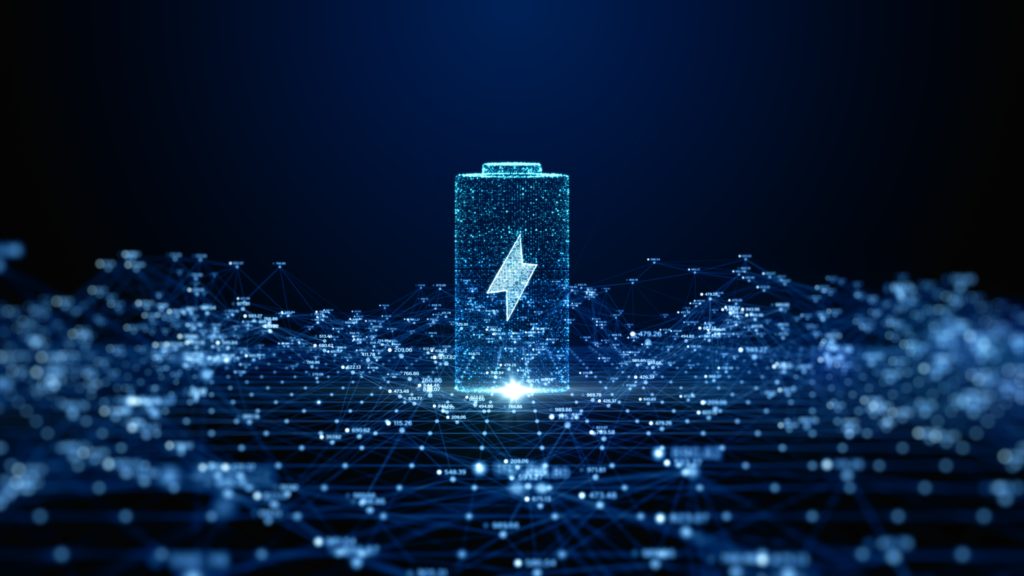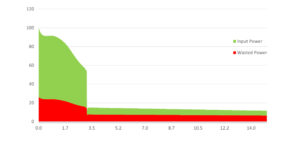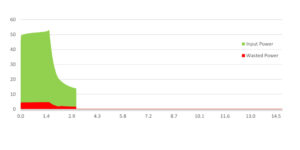
Unique efficiency profile boosts battery charging performance
As technology evolves, equipment manufacturers continue to develop more innovative products that offer greater convenience and improve overall user experience for consumers. Battery innovation has increased energy capacity and reduced charging times so that a growing number of portable devices can deliver similar performance to mains-powered alternatives. Vacuum cleaners, garden tools and grooming products are just a few examples. Regular charging is typically required and the process of transferring electrical energy into the battery can be hugely wasteful. This has a direct impact on consumer electricity bills, global energy demand and CO2 emissions.
What’s the problem?
Battery chargers are designed to inject power and preserve battery life by following a charge profile tailored for each different cell chemistry. The conventional power electronics technology used in most battery chargers will generate heat throughout the charge cycle due to inefficiencies when converting AC to DC. To illustrate this problem, Pusiv randomly selected a commercially available battery charger for testing and found some interesting results.
Legacy Charger Power Usage

Time (Hours)
Outcome:
- The charger delivered a peak efficiency of 74%, but operated at 50% for much of the time
- Half of the power was wasted over an extended period after the initial fast-charging phase
- The charger claimed to be 100W rated and only delivered 74W maximum output
- The on-board fan was running at all times
- Assuming daily use, the estimated avoidable annual waste for a single unit was £166 and 150Kg of CO2
Pulsiv OSMIUM technology provides a solution
While existing techniques can help to reduce system losses during the battery charging process, they generally involve more expensive components. This leaves equipment manufacturers with a difficult choice between minimising their one-off production costs or reducing ongoing electricity bills for the consumer. Pulsiv OSMIUM is a new and innovative technology that makes it possible to do both.
Pulsiv OSMIUM uses a unique method of converting AC to DC that delivers an unrivalled flat efficiency profile using commodity system components. Regardless of whether a battery charger operates in standby mode, at full power or anywhere in-between, it remains efficient at all times to minimise the amount of wasted energy. When tested under the same conditions as the Legacy Charger, a 150W Salom design based on Pulsiv OSMIUM technology produced this set of results:
Pulsiv/Salom Charger Power Usage

Time (Hours)
Outcome:
>90% efficiency was achieved during the fast charging phase and wasted power reduced by 96% at all other times. A side-by-side comparison shows many other advantages:

Launched in September 2022, this ground-breaking technology provides manufacturers with a cost effective method of delivering consistently high efficiency in power electronics circuits to reduce overall energy consumption. It offers engineers complete flexibility to adapt and scale for virtually any application from just 20W to several kW, with evaluation boards and document packages available online to simplify the design process. Both generic and application specific reference designs will be released in February 2023, including variations optimised for USB-C charging to support recent EU legislation.
A range of battery charging applications can benefit from Pulsiv OSMIUM technology:
- USB-C chargers and adaptors
- E-bikes and scooters
- Mobility scooters
- Vacuum cleaners
- Portable kitchen appliance
- Garden and power tools
- Grooming products
- Laptops
- Portable speakers
For any manufacturer seeking to improve efficiency in their battery chargers, the Pulsiv team is ready to support you. Please feel free to contact us directly.